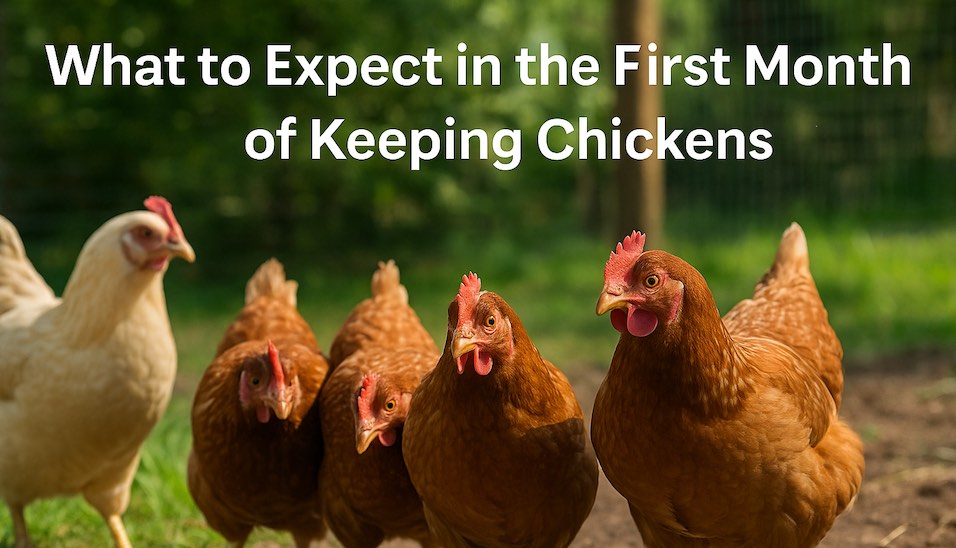How to Prevent Chicken Respiratory Illnesses Naturally
How to Prevent Chicken Respiratory Illnesses Naturally
Respiratory illnesses can quickly turn serious in backyard flocks, especially when hens show symptoms like sneezing, coughing, or wheezing. These issues often start with stressors like cold weather, overcrowding, or mites. If left unchecked, they can spread and weaken the entire flock.
The good news is there are natural remedies for chicken respiratory infection at home that are effective and easy to use.
One trusted remedy among Aussie keepers is VetRx, a natural solution that’s easy to use and highly effective.
Key Takeaways
- Respiratory illnesses in chickens are often caused by stressors like cold weather, mites, or poor coop hygiene.
- Early signs of respiratory distress include sneezing, coughing, wheezing, and nasal discharge.
- Maintaining a clean and dry coop is essential for preventing respiratory illnesses from spreading.
- A natural remedy like VetRx rubbed on hens' beak, added to your flock’s drinking water, or prayed over your flock can help soothe and support their respiratory systems.
- Spraying a VetRx solution over the flock is a practical way to promote respiratory health, especially during stress events.
- Isolating sick birds and providing targeted care can protect the rest of the flock and speed up recovery. Consult a vet if the symptoms get worse.
VetRx is the Best Way to Prevent Chicken Respiratory Illnesses Naturally
VetRx is a high-quality remedy for chickens as well as other poultry. It is the healthy choice with 100% natural ingredients. It helps prevent parasites and disease in chickens and other poultry.
It is developed to treat the symptoms of respiratory infection in chickens. Particularly useful in preventing and treating Chicken Respiratory Disease as well as related illnesses, VetRx also provides relief from symptoms of illness such as breathing difficulties, coughing, sneezing and wheezing.
The disinfecting qualities are suitable for use throughout the coop to help prevent the incidence and also the spread of CRD.
How to Use VetRx for Natural Respiratory Relief
1. Add VetRx to Drinking Water
One of the easiest chicken respiratory infection treatments is adding VetRx to drinking water. This natural remedy ensures all your birds benefit from its soothing effects.
- Warm the VetRx bottle in a small pan of water before use.
- Add a few drops of VetRx directly into your flock’s clean drinking water.
- VetRx will float on the water’s surface, coating the beaks and nostrils of your birds each time they drink.
This simple method ensures all birds get the benefit of VetRx without extra handling.
2. Spray the Flock with VetRx Solution
Another effective natural remedy for chicken respiratory infection is spraying your flock with VetRx solution.
- Prepare a warm VetRx solution (1 teaspoon of VetRx to 1 cup of very warm water).
- Use a clean spray bottle, keeping it warm in a pan of hot water between uses.
- Lightly mist the solution over your flock during stress events like moulting, heatwaves, or transport.
This method allows VetRx vapours to be inhaled, soothing the flock’s airways.
3. Treat Individual Birds
For hens with more severe symptoms, targeted natural remedies for chicken respiratory infection may be needed.
- Down the throat: Administer a few drops of warm VetRx at night to ease congestion.
- Rub on head and wings: Apply VetRx around the nostrils, on the head, and under the wings. The vapours will help relieve symptoms as the bird roosts.
- Swab stubborn symptoms: Use a stronger mix (1 teaspoon VetRx in ½ cup warm water) to swab the throat, nostrils, and eyes 3-4 times daily.
4. Use a Vaporiser
For flock-wide care, VetRx works brilliantly in a hot-water vaporiser:
- Fill the vaporiser with full-strength VetRx.
- Operate it for at least one hour while your birds roost.
This creates therapeutic vapours that provide relief across the flock.
Important: Disinfect the Coop
Respiratory symptoms often spread in dirty or damp environments.
While VetRx supports your chickens’ recovery, it’s not a disinfectant. Regularly clean your coop with a disinfectant to remove bacteria and reduce the risk of further infections.
Focus on nesting boxes, roosts, and litter, and clean feeders and drinkers regularly.
VetRx Treats the Symptoms of Chicken Respiratory Disease
In addition to preventing CRD, VetRx Poultry Remedy may be used to treat the symptoms of respiratory infections. Use VetRx on its own, or combine with a broad-spectrum antibiotic.
The following methods are recommended:
- Drip VetRx Solution into the bird’s nostrils
- Place a few drops of VetRx Solution down the bird’s throat at night
- Rub warm VetRx over the head and under the wings of the affected bird
- Keep the nostrils, eyes and throat as clean as possible by swabbing the throat and washing the head and eyes with VetRx Solution 4-5 times a day.
- In severe cases, a double-strength VetRx Solution (1 teaspoon of VetRx to a ½ cup of water) can be used.
As with all illness, good hygiene is crucial. Sick birds should be removed to isolation immediately and the coop thoroughly cleaned. VetRx should be used with the rest of the flock, as detailed above, in order to help prevent the infection from spreading.
If symptoms of illness persist, consult your veterinarian.
For more information see our Expert Advice on Identifying and Treating Chicken Respiratory Disease
Why Respiratory Health is Critical for Your Flock
Chickens are especially vulnerable to respiratory illnesses because of their sensitive airways. Dusty coops, damp litter, and environmental stress can all trigger symptoms like laboured breathing or nasal discharge.
To help your chooks recover and protect the rest of the flock:
- Identify signs of respiratory distress early (coughing, sneezing, or wheezing).
- Take quick action with natural remedies and coop maintenance.
- Support your flock with proven solutions like VetRx to ease symptoms and aid recovery.
Environmental Stressors Causing Respiratory Illnesses
While often overlooked, environmental stress is a leading cause of many chicken illnesses.
Environmental triggers that can cause infection or illness include:
- Extreme temperatures - either cold or heat
- Poor living conditions
- Health issues like mites and worms
- Transportation, showings or the introduction to a new flock
- Natural processes that put a chickens body under stress such as moulting and breeding
Even the most dedicated backyard chicken keeper cannot stop birds from moulting or avoid extreme temperatures. But there are things we can do to help our chickens cope with these stresses and to protect them against Chicken Respiratory Disease (CRD) and other infections.
Help Your Chooks Breathe Easy
Respiratory illnesses don’t have to threaten your flock’s health. Acting quickly with natural remedies like VetRx and keeping your coop clean can make all the difference.
Ready to help your hens recover? Shop VetRx here or contact us for expert advice.





